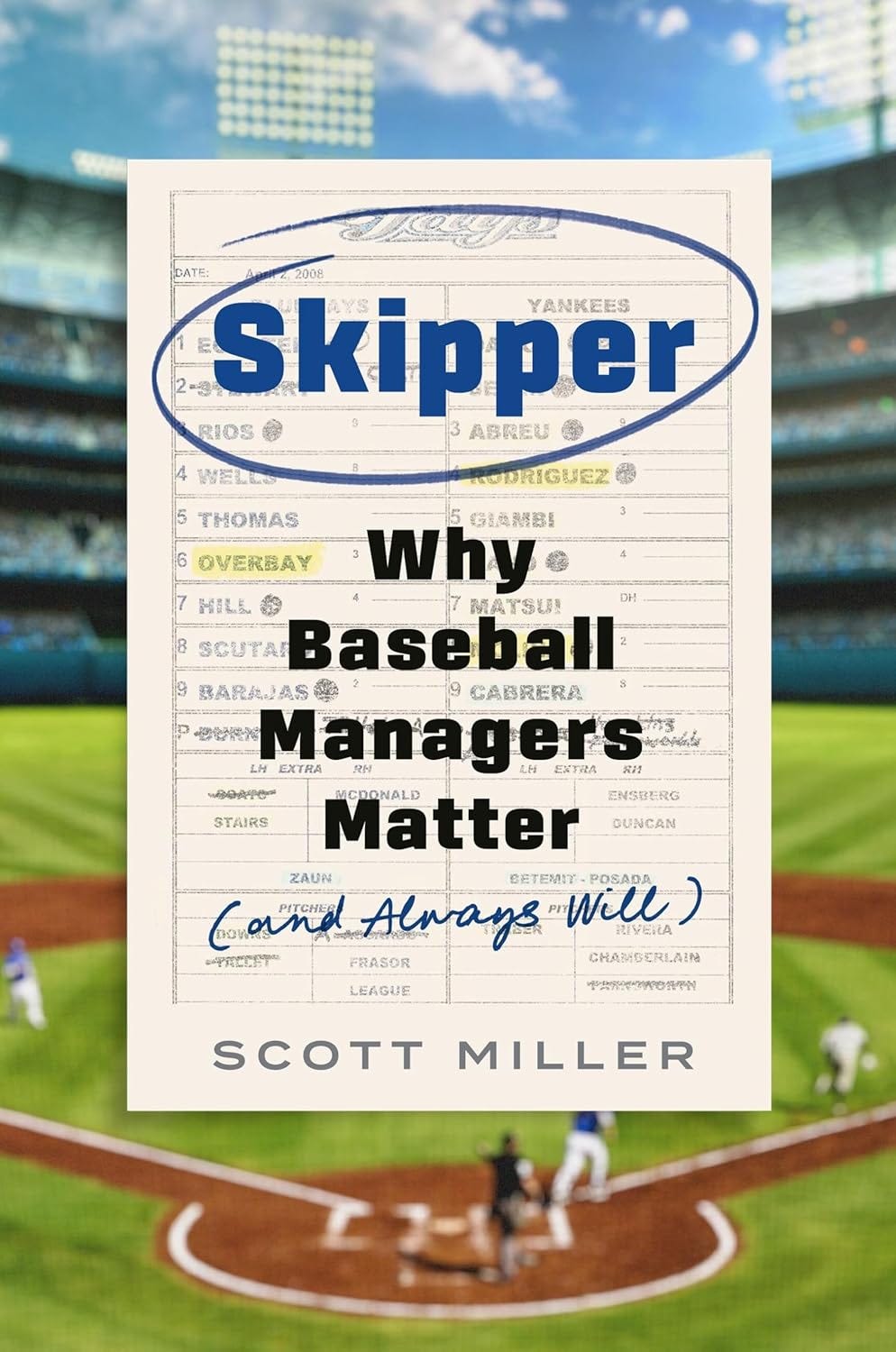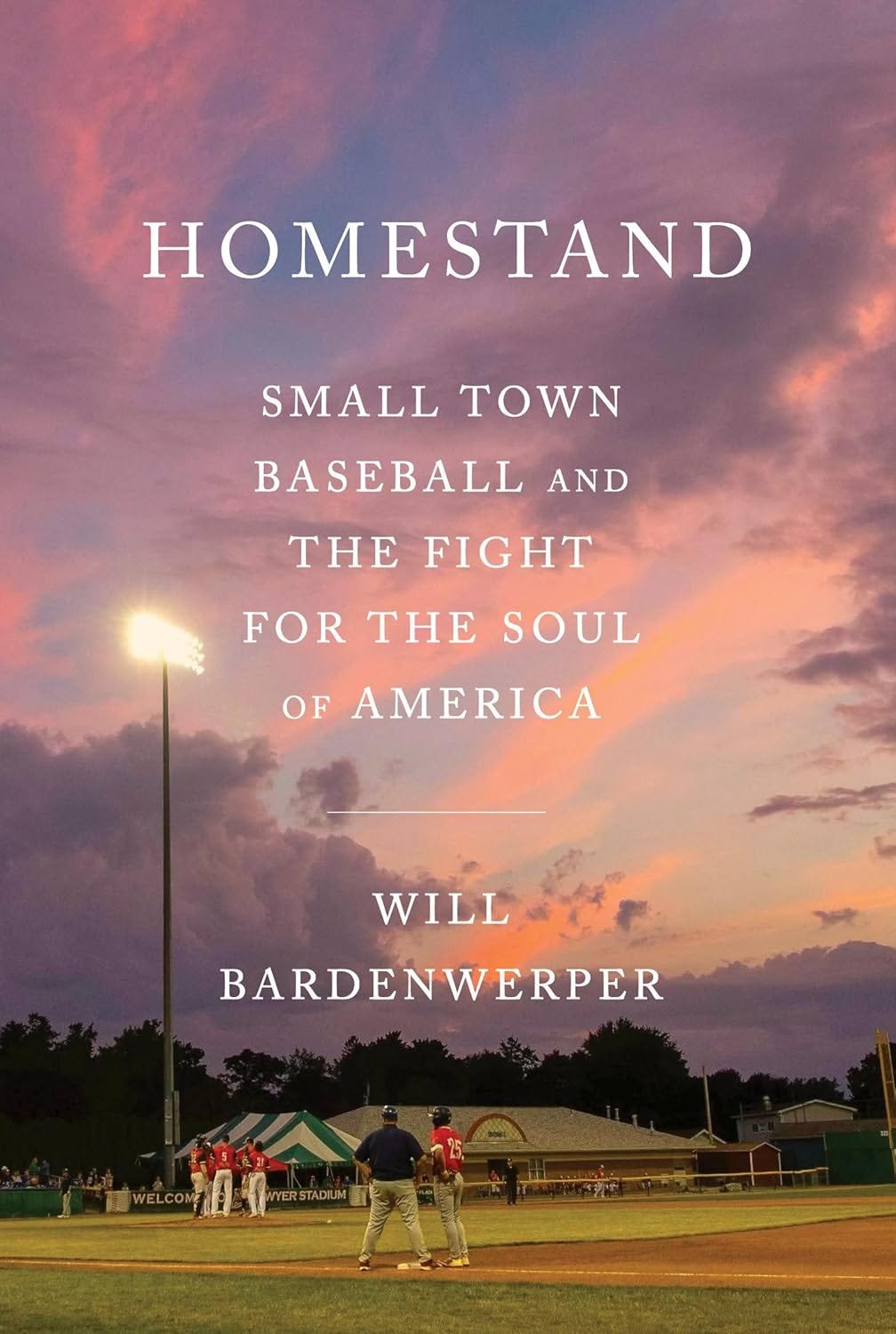C&C 77: If They Don’t Win, It’s a Shame
New books let me ramble about baseball while once again actually talking about something else
It was All-Star Week in Major League Baseball, the break coming just past the halfway point of the season. I haven’t paid attention to the All-Star Game itself in well over a decade,1 following the lead of many of the sport’s top athletes who opt to sit the contest out.2 Instead, I use this breather to reflect on the unconscionable amount of baseball I’ve already watched. The New York Mets started strong before, in their time-honored fashion, hitting a nightmarish rough patch, from which they appear to have emerged. They sit half a game out of first in their division and in solid shape for the wild card. As for my adopted hometown Seattle Mariners, they’re starring in a movie I’ve seen before, in which they scuffle and let a winnable AL West slip away while lingering on the periphery of the wild card race. What makes this iteration worse is the prospect of squandering a historic season from their catcher Cal Raleigh, who won the pointless fireworks display of the Home Run Derby this week.
What else is happening in America’s bucolic national pastime? Prospective labor unrest, along with players routinely receiving death threats and abuse as a result of the league’s devil’s bargain with gambling. Two recent books underscore how baseball, as it contends with an array of cultural challenges, remains a microcosm of other organizations and the country itself.
As every profession grapples with the use of AI, it’s worth remembering that baseball has essentially been the canary in that coalmine since the advent of analytics, as captured in Michael Lewis’ landmark book Moneyball: The Art of Winning an Unfair Game (2003). The shift to data-driven decision-making would seem to have taken the greatest toll on managers, those irascible figures like Billy Martin and Earl Weaver who used to make calls relying on what their eyes saw and their guts told them. Sportswriter Scott Miller pushes back against that perception in Skipper: Why Baseball Managers Matter and Always Will (2025). In this deeply-researched book, he makes the case for maintaining the human element in a game that, thanks to “the New Normal emanating from the New Rules,” is now frequently “softer, less edgy, less emotional, and more robotic.”
The top step of the dugout has always been a lonely place. Now, Miller writes, the job is “lonely … for different reasons.” The best to do it availed themselves of information long before the dawn of Sabermetrics but the current expectation is for a manager to serve primarily as a filter between the operations office and the clubhouse, getting players to buy in to strategies concocted by analysts. In such an environment, Miller argues, small, idiosyncratic choices—like Joe Torre’s practice of jogging to the mound when he wanted to check in with his pitcher and walking out when he’d already opted to go to the bullpen—can matter even more. Miller clearly prefers what he calls:
… baseball as art. Creative and imaginative, driven by emotion, coupled with smart instruction. It is the opposite of analytics, which is zero emotion and, essentially, caps a player’s ability by identifying what he doesn’t do well and, instead of teaching and developing those areas, finds a second puzzle piece that simply plugs in to overcome the first player’s shortcomings.
But he’s also a realist, accepting that the game has evolved and exploring how finding the gaps where the personal can still make an impact is, as the analysts would say, the new market inefficiency. He digs into the still-shocking paucity of managers of color and the arrival of women on major league coaching staffs. He spends four illuminating days shadowing Dodgers skipper Dave Roberts to explain the duties of the detail in the modern game. And on every page he asks how, in an increasingly mechanized system, the individual can effect meaningful change. The question applies far beyond the diamond.
Sadly, Scott Miller died in June, only weeks after Skipper’s publication. In the book’s afterword, he describes a proposed chapter on player-managers that would have drawn on conversations with the last two of the breed, Don Kessinger and the late Pete Rose. “Perhaps one day, somewhere, I’ll resurface those interviews,” Miller suggests. Here’s hoping that day still comes.
Money drives the AI gold rush, and the quest to maximize revenue continues to transform entire industries. In 2020, MLB liquidated forty-two of its minor league teams. Private equity swept in and vacuumed up many of the remaining clubs. At least one hamlet chose to fight back. Batavia, New York, located between Buffalo and Rochester, has been home to a baseball team since 1897. When the Muckdogs were dropped as an MLB affiliate, the club joined a college summer league. The experience wasn’t quite the same—one of the joys of the minors is tracking players as they work their way up to the big league—but there would still be baseball in Batavia.
Will Bardenwerper lets you know how seriously he takes this subject in the subtitle of Homestand: Small Town Baseball and the Fight for the Soul of America (2025). “This isn’t just a story about baseball,” he insists, but “a story about America, and where we go from here.” Finding himself “increasingly adrift from, and demoralized by, a country that seemed to be coming apart at the seams,” he embeds with the reconstituted Batavia Muckdogs as, to their surprise and his, they battle for a championship.
Reading Homestand at times replicates the long slog of a season, full of longueurs and losing streaks. It’s a somber and respectful book, too much so. Bardenwerper is an adherent of the George Will school of baseball writing, the sport reverently viewed as a repository of all that is Good and Right as opposed to a kid’s game played by Knuckleheads and Miscreants. The book is repetitive—every member of the extended Muckdogs family is reintroduced upon each return to the page—and occasionally maudlin. Bardenwerper is given to the vague, common-sense bromides that in a bygone age you’d hear in an after-dinner speech at the Rotary Club, or that you’d stumble upon today in a “guest editorial” in the hollowed-out local newspapers that serve towns like Batavia.
Still, some of those points, like put down your phone and spend time with other people, are valid. And Bardenwerper, who abandoned a finance career to enlist in the military after 9/11, understands the importance of boots on the ground. He puts in the time in Batavia, overcoming his outsider status to become, for a summer, at least, a member of the community.
Above all, he directs his ire at the right targets. A fact he deservedly cites more than once is that cutting a minor-league club allows each billionaire-owned franchise to pocket the equivalent of one (1) major-league minimum salary, a savings that hardly seems worth destroying “some of the few remaining places where people could still find happiness and connection, for affordable prices.” He laments that youth baseball is now dominated by costly travel leagues, keeping talented but financially disadvantaged athletes out of careers in the game, a state of affairs being replicated in the arts, journalism, and other fields. Now living in Pittsburgh, Bardenwerper bridles at the expense of taking his son to see the Pirates, a consistently noncompetitive team owned by the tightfisted Bob Nutting, who amassed his fortune in part by hollowing out those local newspapers around the country. Bardenwerper still roots for his hometown team but admits “Wearing my Mets cap now makes me feel like an accomplice to an enterprise I feel guilty supporting.” I haven’t reached that point, but I understand the sentiment.3
It’s received wisdom to say that politics has become too much like sports—or, to make the now-common Trump-era wrestling comparison, sports entertainment. Partisans root not just for their team’s victory but the vanquishing of their opponents. In Homestand, Will Bardenwerper finds the abundant Biden signs in Pittsburgh and the Trump ones sprouting up all over Batavia equally distressing. My experience as a baseball fan differs. Maybe that’s because the game hasn’t truly been our national pastime for eons. And it’s fundamentally about two things: failure and the grind. The best hitters still fail to reach base more than half the time. There are 162 games in the regular season, and every team’s got to play them all. As Scott Miller writes in Skipper, “In so many ways, baseball is the same as regular life only with the volume turned up.”
I wear my Mets cap in Seattle a lot, without Bardenwerper’s misgivings. It generates cries of “Let’s Go Mets!” on a regular basis. Earlier this summer, a transplanted retiree stopped me in the street to tell me about the time Art Shamsky of the 1969 Miracle Mets attended a bagel breakfast at his synagogue. It’s the reactions from fans of the Mets’ rivals that amuse me most. Someone in a Phillies or Yankees cap, say. Good-natured trash talk typically ensues, along with mutual, begrudging admissions of respect for one (but only one) player on the opposing squad. Such encounters have even ended with fist bumps.4 It’s not a divisive moment but a bonding one, each of us happy to have crossed paths with someone who still loves this ridiculous sport that’s forever on its last legs.
Both Skipper and Homestand claim that Greg Maddux, the Hall of Famer universally regarded as one of the greatest hurlers in baseball history—he has a statistic named after him, for crying out loud5—would be passed over today because he was never a fireballer throwing at 100 mph, preferring a more precise, cerebral approach. I believe it. Yet I’ll still watch baseball when it resumes today. I’ll be seeing my first in-person game of 2025 next week, shockingly late in the season for me. And I have a bucket-list item coming up before the playoffs start. When it happens, I’ll wear my Mets cap as usual and clock the reactions.
Yes, OK, fine, I tuned in when I heard that the game was going to the first-ever home run swing-off after nine innings to determine a winner, which put me in the awkward position of having to root for Kyle Schwarber.
Even the question of who replaces those competitors has become a point of contention, because MLB will never miss an opportunity to shoot itself in both feet.
I’m still adjusting to the Mets finally having financial resources befitting a New York ball club. That said, paying over three-quarters of a billion dollars to a single player who profiles to be a DH before his contract is half-up still gives me pause.
Atlanta Braves fans are the exception. When they spot my Mets cap, they tend to give me the stink eye and walk on. Anecdotal evidence for any sports anthropologists out there.
Maddux: A complete game shutout with fewer than 100 pitches thrown




Terrific post, Vince!
Why Life is Like Baseball! :)
https://www.youtube.com/watch?v=zVcT3JwJwlQ
PS: Let's go Mets!!